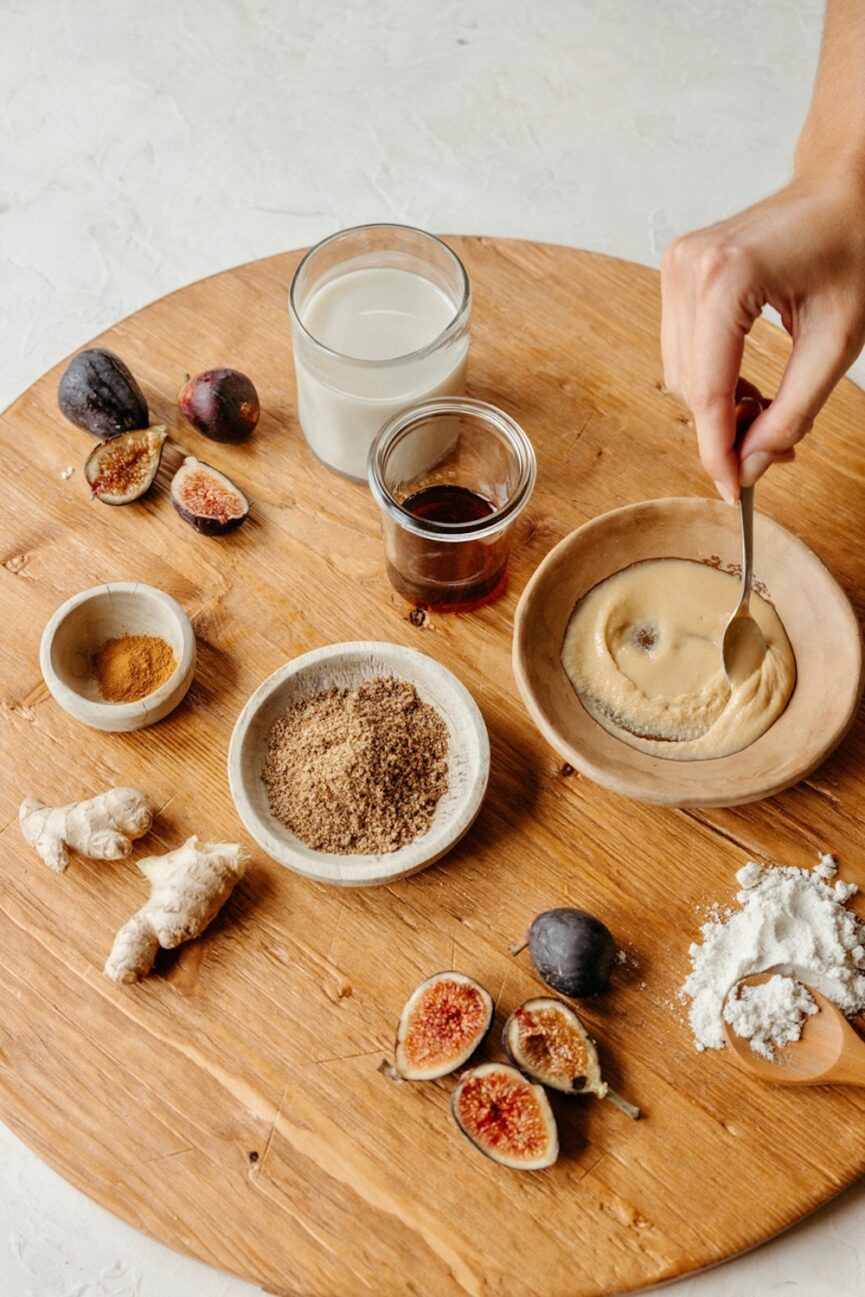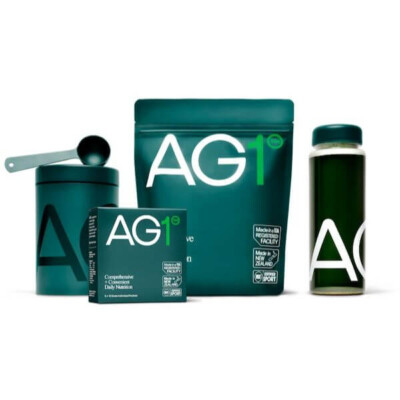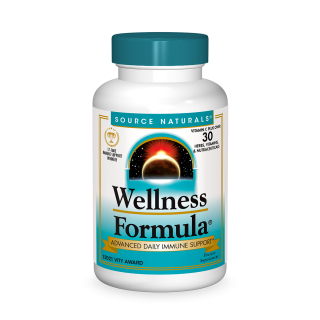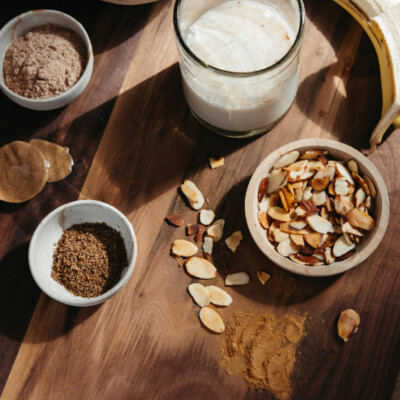As with nearly all areas of wellness, what supports us best looks different for everyone. Someone may feel energized and at their most vibrant by going grain-free. Others may prefer Pilates over strength conditioning. Many of us need a solid eight hours of sleep, but there are people who function best off nine. There are endless permutations to this truth—because when it comes down to it, what helps you show up as your best self is deeply personal to you. That extends to supplementation and deciphering between the best vitamins for women.
The Best Vitamins for Women
To gain a deeper understanding of which vitamins align best with women’s unique needs, I spoke with double board-certified integrative primary care physician, Dr. Mary Ella Wood, DO. She underscores this truth of bio-individuality: “The top vitamins women should be taking will be different for everyone. That is the beauty of the direction medicine is going. No one body is the same, so our supplement profile should not be either.”
So what does that mean for you? Dive into our conversation ahead and discover the best vitamins, along with Dr. Wood’s tips on what to look for.

Mary Ella Wood, DO is a double board-certified integrative primary care physician. Dr. Wood started her career in general surgery, where she first noticed the many flaws in the way we practice modern medicine. Realizing that these ‘alternative’ practices truly get to the root cause of disease, she switched specialties and pursued further training in integrative nutrition, mind-body medicine (she is a registered yoga teacher), Ayurveda, and psychedelic medicine. She currently practices at the Osher Center for Integrative Medicine at Northwestern.

What are your favorite vitamin brands? Which vitamins do you personally take?
There are so many supplement brands out there, so it can be hard to know if you are getting a reliable one. Definitely make sure the brand you choose is tested by third party organizations like Consumer Lab, National Products Association, or United States Pharmacopeia. Fullscript is a great place to buy supplements because they ensure the quality of all the brands they sell. I personally like Thorne, Seed, Athletic Greens, Pure Encapsulations, Nordic Naturals, Nature’s Way, and Source Naturals. NatureMade is also a good one that is affordable, reliable and available in most pharmacies.
I personally take Athletic Greens AG1 every day. I like that it is a one-stop-shop for vitamins, minerals, superfoods, adaptogenics (Rhodiola rosea, Ashwagandha), medicinal mushrooms and probiotics. On top of that I take an additional probiotic and vitamin D supplement.
Additionally, if I get sick or I want to prevent a cold, I will take Source Naturals Wellness Formula. This one is a game-changer. It contains high-potency vitamin C in addition to herbal extracts like echinacea, elderberry, ginger, garlic, and more.

What should women look for when it comes to supplementing with vitamins?
First, getting your vitamins and minerals through good nutrition is always going to be better than supplementing. After that, definitely consider your personal health history and health goals. Healthcare and wellness should always be individualized.
If you do decide to take supplements, make sure the dose is appropriate. Most water-soluble vitamins are generally okay to take without consulting with a physician, but when it comes to fat-soluble vitamins or herbal supplements you need to talk to your doctor first. Some herbs have a lot of interactions with specific medical conditions, pregnancy, and medications like blood thinners and birth control pills. Last, make sure that you are getting your supplements from a reliable brand that is tested by third party organizations.
If cost is a concern, what is the primary vitamin you would recommend a woman take to support her health?
I would start with a multivitamin that contains at least vitamin D, C, and the B vitamins. For many women, this might be all you need.

Vitamin D3
Recommended dose: 600-800 units daily. An appropriate dose of vitamin D will depend on how deficient you are (ask your doctor to get your levels checked).
Vitamin D is essential for:
- bone health
- muscle strength
- cancer prevention
- heart health
- diabetes maintenance and prevention
- immune health
- cognitive function
Low levels of vitamin D can cause fatigue, insomnia, generalized pain, depression, hair loss, muscle weakness, and frequent colds.
Vitamin D is fat-soluble, which means that we do not have an easy way to excrete an excess of it. This means that you can take too much. High vitamin D levels will increase calcium absorption which can cause a number of different problems.

Omega-3 Fatty Acids
Not technically a vitamin, but so important. These are anti-inflammatory and essential for improving cholesterol levels, lowering blood pressure, decreasing inflammation and improving cognition. Studies are also showing that these can help improve depression scores, chronic pain, and PMS or menopause symptoms.
The key is to make sure you are getting the correct ratio of omega-3s to omega-6s (2:1 favoring the omega-3s). You need some omega-6, but if you have more omega-6 than omega-3s then it will actually be inflammatory to the body. Unfortunately, our Standard American Diet (SAD) is skewed more toward omega-6s than omega-3s, which is why supplementing is important.
An interesting note on this: Eggs that come from farms that treat their chickens well produce yolks that have the perfect balance of omegas (which gives the yolk that nice orange color). Most of the eggs that you can purchase at the grocery store come from stressed out chickens. This stress actually converts the omegas to favor omega-6, which is inflammatory to the body (these yolks will be more yellow in color).
So, the one downside to eating a diet high in omega-3s is that it can be costly, requiring you to purchase the pricier eggs or get at least 3 servings of fatty fish a week. If this is not feasible, then supplementing is a great option. (Fish oil supplements are the most common.)
Vitamin C (Ascorbic Acid)
Recommended dose: 75-120 mg daily
You need vitamin C to synthesize collagen, L-carnitine, and neurotransmitters. It is also a potent antioxidant which means it can neutralize free radicals (from sun exposure, environmental exposures, and processed food) to help prevent cancer and signs of aging like fine lines and wrinkles. Vitamin C also supports a healthy immune system and has been shown to prevent and reduce the duration and severity of respiratory infections. The good thing about vitamin C is that it is water soluble, which means that it is very hard to take too much.

B Vitamins
Recommended dose: There are a lot of B-complex multivitamins out there that contain all of the B vitamins. For dosing, make sure that it has at least 2.4 mcg of B12, 50 mcg of B7 (higher if you want to treat hair loss), and 400 mcg of B9.
While they are all important, vitamin B12 (cobalamin) is probably the most essential to supplement, especially if you follow a plant-based diet or are vegan. Most of the vitamin B12 comes from animal meats or products (dairy).
Vitamin B12 is essential for:
- digestion
- production of DNA
- healthy nerve and brain function
Other than that, vitamin B7 (biotin) is essential for healthy hair, skin, and nails. One of the most common causes of hair thinning is actually a deficiency in biotin. Next on the B vitamin list is vitamin B9 (folic acid), which is essential to take if you plan on becoming pregnant anytime soon. Having adequate folic acid levels is most important before becoming pregnant to prevent neural tube defects in babies.
The B vitamins are also water soluble, like vitamin C, so for the most part you do not have to worry about taking too much.
Iron
Recommended dose: 15 mg daily. You will probably see a lot of iron supplements that are dosed at 325 mg of ferrous sulfate (which is 65 mg of elemental iron). If you are not iron-deficient, you do not need to take this much.
Iron is also an important one, but you do need to be careful about taking too much of it. Many women are iron-deficient due to blood loss during menstruation. Low iron can cause anemia and lead to extreme fatigue, weakness, pale skin, chest pain, headaches, brittle nails, and a whole slew of problems.
On the other hand, iron overload can damage your heart, liver, and pancreas. This is more common with frequent iron infusions or blood transfusions, but it can also happen with over-supplementation. On top of that, iron supplements cause constipation and other gut issues. I recommend talking to your doctor to get your iron levels checked before supplementing.

The next two are not technically vitamins, but definitely supplements that I recommend to most patients.
Probiotics
Probiotics are supplements (or foods) that contain live bacteria that help support a healthy gut microbiome. These are great not only for digestive health, but also for improving immune health, skin health, and even mental health. We are learning more and more about the gut-brain axis that describes the relationship between our gut flora and the brain. You can get probiotics in fermented foods like yogurt, kombucha, and sauerkraut. If you want to go the supplement route, make sure that the one you choose has at least 10 billion CFUs (colony forming units), but the more the better.
Additionally, ensure that it contains a diverse bacteria profile and lactobacillus and/or bifidobacterium. On top of taking probiotics, it is also important to get enough prebiotic foods (these are high-fiber foods that act as food for the bacteria).
Great prebiotic foods include:
- whole grains
- bananas
- garlic
- onions
- flaxseeds
- legumes
Turmeric (Curcumin)
Recommended dose: 1000 mg daily
This little spice packs a big punch. It is a potent anti-inflammatory and has antimicrobial and anticancer properties as well. In fact, it is actually more effective than ibuprofen to treat inflammation, but without all the bad potential side effects like stomach issues or kidney damage. It is especially useful for gut issues, arthritis, and any issues caused by inflammation.
One thing to note about turmeric is that you need to take it with black pepper for the body to absorb it.








